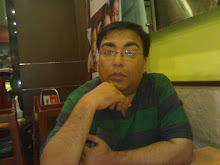
The Commonwealth Games in Delhi
Suresh Kalmadi, the Chairman of the organising committee of the 2010 Commonwealth Games believes that the games will leave Delhi far better off than now. Under the guise of the games Delhi is being rebuilt as a modern metropolis. Thanks to the games it will have a state of the art airport, the fourth largest in the world with a capacity of handling more than 37 mn passengers annually, more than 39 new 4 and 5 star hotels, numerous new flyovers and an extended metro service straddling the NCR. With each flat in the Commonwealth Games village priced at around Rs. 3 Cr.( coming up right in the bed of the Yamuna) will provide residences to the cities super rich. With the Delhi government busy giving the city’s roundabouts and parks a facelift, the city will look new and different. To provide for the higher energy needs the Delhi government is upgrading its power generation capacity from the present 4500 MW to 7000 MW. The new stadia being built across the city will ensure a sporting culture in the city and will go a long way in producing champions, who will bring great honour to the city and the country in future international sporting events. Mr. Kalmadi earnestly feels that the successful organisation of the Commonwealth Games will open the doors for the city hosting the Olympics one day.
All this sounds wonderful only if you overlook the huge costs involved in the games. The budget for the games is USD 1.6 bn (Approx Rs. 6500 Cr) This excludes the money to be spent in infrastructure projects that the Delhi government is incurring. The central government is largely funding the games through grants and loans. The Games Organising Committee has taken a loan of Rs. 1650 Cr., from the Central government, which it hopes to back from the revenues it will generate from the games. The infrastructure upgrade is also being funded by the Delhi government from its resources as well as budgetary support from the coffers of the Central government. The government of Delhi has been constrained to raise taxes to fund these massive projects.
At the end of the day, it is you and me who are paying the price for this monumental show. Is spending this kind of money on a sports extravaganza , when millions of our countrymen suffer from chronic hunger and unending poverty, worth it? And why do we need a Commonwealth Games to build Delhi’s infrastructure? A new airport, more power, good roads and efficient public transport need not be beholden to a sports event. Shouldn’t a responsible city government invest in the city infrastructure irrespective of the games hoopla?
Through the games are we trying to send a message to the world about our rising power, prestige and prosperity? Are we telling the world that India is no more the poor nation they thought it was? By equating a gleaming New Delhi with the toiling India, aren’t we fooling ourselves?






